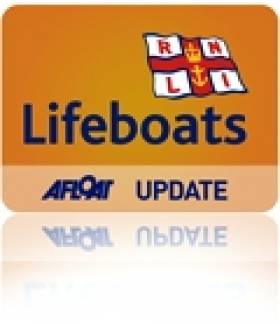Displaying items by tag: Carrybridge
New Lifeboat Station For Upper Lough Erne
#RNLI - Enniskillen RNLI is to get a new lifeboat station at its Carrybridge base on Upper Lough Erne, it has emerged.
Planning permission for the new build has been passed by Fermanagh District Council and the RNLI’s tendering process is now underway, with a view for building work to commence in late summer.
Once complete, the modern station - much like the new facility for Castletownbere RNLI that opened recently - will replace the existing temporary accommodation which has housed the charity’s volunteer lifeboat crew for the past 11 years.
In order to facilitate the project, the local community is being asked to help the RNLI raise £60,000 (€70,000) towards the cost, which will help Enniskillen RNLI continue to save lives on Lough Erne.
In 2001, Enniskillen became home to the RNLI’s first inland lifeboat station based on Lower Lough Erne.
Due to the overall size and complexity of the lough and its high leisure usage, the decision was taken by the RNLI in 2002 to base a second lifeboat on the upper lough that would work in conjunction with the original lifeboat station on the lower lough.
With two bases, two inshore lifeboats and two rescue water craft, the station has since proved to be one of the busiest in Ireland.
Last year alone, Enniskillen RNLI launched 46 times bringing 50 people to safety. Some 20 of those services were carried out in the dark while the crew spent 169 service hours on the water.
RNLI divisional operations manager Gareth Morrison said he was delighted that planning had now been approved making way for what will be a purpose-built station in a location close to the lough allowing for an efficient launch.
"In an area that receives over 100 days of heavy rainfall a year, it is hard to believe the volunteer crew based at the upper lough operate from just a temporary facility, partly exposed to the elements," said Morrison.
"The crew has to change in a small, damp, metal container and only has a portaloo and wash basin for their comfort. There is nowhere for the crew to shower or dry after a challenging rescue and nowhere for them to gather and train together during the week.
"We want to build a modern station with full crew facilities with areas for the crew to change and train and space to keep their lifeboat and rescue water craft and lifesaving kit safe."
Enniskillen RNLI lifeboat operations manager Davey Robinson said a new station was what the crew deserved.
"At the moment we are operating out of a temporary facility. It is cramped and there are no showers so the crew cannot warm up after a cold, wet and tiring rescue. A new station will be great for the crew. We are a busy station so it is what they deserve."
He added: "It is always reassuring for locals and visitors alike that the RNLI is here to assist them or help their loved ones when they get into difficulty. We try to act as a safety net on Lough Erne and are here 24 hours a day. But we need the right facilities to do that and this new station will help."
Donations and other assistance with fundraising are welcome. For details contact Tony Hiney, RNLI community fundraising manager, at 087 219 8917 or email [email protected].
Angler Rescued from Lough Erne
The man who is on holiday in the area was out angling on Lough Erne in his 2.4 metre open boat, when he got into difficulty and ended up in the water. His boat which was powered by an electric outboard hit ice on the lough and the man who is in his 30's ended up in the water.
He managed to get himself out of the water and made it safely ashore to a small island called Belle Island which is in the upper Lough Erne, County Fermanagh.
Belfast Coastguard called out Erne Coastguard Rescue team, requested the launch of Carrybridge RNLI inshore lifeboat and scrambled the Irish Coastguard rescue helicopter R -118.
The man who was well equipped for angling is suffering the effects of the cold water and sub zero temperatures.
He has been recovered by the Carrybridge lifeboat from a remote and inaccessible part of the island and taken to his accommodation on the Island to warm up.
Steve Carson, Watch Manager, Belfast Coastguard said:
This man was fortunate in this incident.
Unfortunately, with the adverse weather that we are experiencing, people are still taking unnecessary risks. The weather and the forecasted weather has been widely publicised in the media. In past years when this Lough has frozen, we have had calls about people venturing onto the ice, on foot and in vehicles. This is madness, and will end up in disaster if people do not heed the warnings.
Please do not place yourself at risk anytime, but with the extreme weather we are experiencing, that message is highly important.
























































